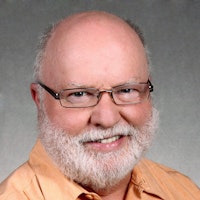Contemplative prayer Is like striking a tuning fork. Once you are tuned, you will receive.
Richard Rohr

Striking a Tuning Fork
Topic: Prayer, Meditation, & Contemplation
Contemplative prayer is like striking a tuning fork. All you can really do in the spiritual life is resonate to the true pitch, to receive the always-present message. Once you are tuned, you will receive, and it has nothing to do with worthiness or the group you belong to, but only inner resonance, a capacity for mutuality (see Matthew 7:7-11), which implies a basic humility. We must begin with the knowledge that the Sender is absolutely and always present and broadcasting; the only change is with the receiver station, you and me.
Prayer is connecting with God/Ultimate Reality. It is not an attempt to change God’s mind about us or about events. Such arrogance is what unbelievers make fun of—and often rightly so. Prayer is primarily about changing our own mind so that things like infinity, mystery, and forgiveness can resound within us. The small mind cannot see great things because the two are on different frequencies or channels. We must match our resonance to Love’s. Like knows like.
Richard Rohr, OFM, born in 1943 in Kansas, is a renowned American Franciscan priest and celebrated writer on spirituality, presently based in Albuquerque, New Mexico. Ordained in the Roman Catholic Church in 1970, Rohr embarked on a spiritual journey that has since garnered widespread attention and respect. By 2011, PBS had recognized him as "one of the most popular spirituality authors and speakers in the world," a testament to his influential presence in contemporary spiritual discourse.
In his pursuit of spiritual growth and community building, Rohr has achieved noteworthy milestones. He attained his Master of Theology degree from the University of Dayton in 1970. The subsequent year saw him founding the New Jerusalem Community in Cincinnati, Ohio. But perhaps his most enduring legacy stems from establishing the Center for Action and Contemplation (CAC) in Albuquerque, New Mexico, in 1986. Here, he has diligently served as the founding director and academic dean of the Living School for Action and Contemplation. Rohr's teachings, embodied in the school's curriculum, revolve around seven themes explored deeply in his book, "Yes, And."
Rohr's contributions to Christian spirituality, while transformative for many, have occasionally faced scrutiny and opposition, especially from certain conservative Catholic factions. These groups have sometimes critiqued his interpretations and teachings as diverging from traditional Catholic orthodoxy. In this context, a defining moment in his career was his meeting with Pope Francis, who gave a heartfelt endorsement to Rohr's book, "The Universal Christ." This endorsement can be viewed as a significant vindication of Rohr's teachings. It not only bridged potential theological divides but also highlighted Rohr's influential and valued position within the broader spectrum of Christian thought and practice.
The Naked Now
Richard Rohr, The Naked Now: Learning to See as the Mystics See (The Crossroad Publishing Company: 2009), 101-104.

Richard Rohr
Theme: Meditation and Contemplation

About This Richard Rohr Quotation [Commentary]
Richard Rohr’s comparison of contemplative prayer to “striking a tuning fork” centers the practice not on effort but on readiness to receive. He writes, “All you can really do in the spiritual life is resonate to the true pitch.” That pitch is not generated by us but is “always-present”—a signal continuously “broadcasting” from the Divine. What matters is not “worthiness” or group identity, but “inner resonance,” a “capacity for mutuality,” and “basic humility.” Rohr emphasizes that the Divine is already present; our role is to become attuned.
Contemplative prayer, he explains, is not an attempt to “change God’s mind about us or about events.” That approach, he warns, can reflect spiritual arrogance and miss the point entirely. Instead, prayer is about changing “our own mind so that things like infinity, mystery, and forgiveness can resound within us.” These are not ideas the “small mind” can grasp. Rohr notes that the small and great are on “different frequencies or channels.” In order to hear, we must be on the right frequency—one that matches Love’s.
This is why, Rohr says, “once you are tuned, you will receive.” The work of prayer is not about doing more but about allowing more. The Divine message is steady; the only shift occurs in the “receiver station, you and me.” Meditation and contemplation help quiet what distorts the signal—fear, self-importance, and the need for control. When we come into resonance with Love, what we receive is not status or certainty but relationship—shared presence, humility, and the possibility of true communion.
The Context Passage For This Richard Rohr Quotation
Contemplative prayer is like striking a tuning fork. All you can really do in the spiritual life is resonate to the true pitch, to receive the always-present message. Once you are tuned, you will receive, and it has nothing to do with worthiness or the group you belong to, but only inner resonance, a capacity for mutuality (see Matthew 7:7-11), which implies a basic humility. We must begin with the knowledge that the Sender is absolutely and always present and broadcasting; the only change is with the receiver station, you and me.
Prayer is connecting with God/Ultimate Reality. It is not an attempt to change God’s mind about us or about events. Such arrogance is what unbelievers make fun of—and often rightly so. Prayer is primarily about changing our own mind so that things like infinity, mystery, and forgiveness can resound within us. The small mind cannot see great things because the two are on different frequencies or channels. We must match our resonance to Love’s. Like knows like.
Without contemplation, the best you can do is to know by comparison, calculation, and from the limited viewpoint of “you.” Prayer knows reality in a totally different way. Instead of presenting a guarded self to the moment, prayer stops defending or promoting its ideas and feelings, and waits for, expects, and receives guidance from Another. It offers itself naked to the now, so that our inner and aroused lover can meet the Lover. Such prayer takes major surgery of heart, mind, and inner sight. Prayer is about changing you, not about changing God.
Most simply put, prayer is something that happens to you (Romans 8:26-27), much more than anything you privately do. It is an allowing of the Big Self more than an assertion of the small self. Eventually you will find yourself preferring to say, “Prayer happened, and I was there” more than “I prayed today.” All you know is that you are being led, guided, loved, used, and prayed through. You are no longer in the driver’s seat. Following this guidance you will know what is yours to do.
God stops being an object of attention like any other object in the world, and becomes at some level your own “I Am.” You start knowing through, with, and in Somebody Else. And then your little “I Am” becomes “We Are.” Afterward you know instinctively that your life is not about you, but you are about Life. “I live now not I, but Another Life lives in me,” to paraphrase Paul’s poetic words (Galatians 2:20).
This does not mean you are morally or psychologically perfect. Not at all. But you will now have the freedom to recognize your failings and to grow and love better because of them. That is the major and important difference!
—Adapted from Richard Rohr, The Naked Now: Learning to See as the Mystics See (The Crossroad Publishing Company: 2009), 101-104. [A Tuning Fork. CAC. Friday, June 30, 2017].
Resources
Related Quotes
Copyright © 2017 – 2026 LuminaryQuotes.com About Us